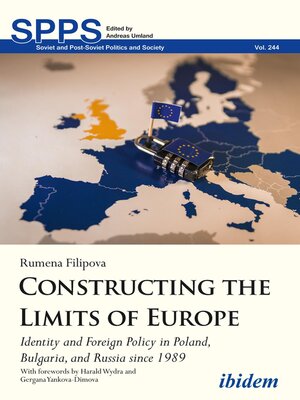Constructing the Limits of Europe
ebook ∣ Identity and Foreign Policy in Poland, Bulgaria, and Russia since 1989 · Soviet and Post-Soviet Politics and Society
By Rumena Filipova

Sign up to save your library
With an OverDrive account, you can save your favorite libraries for at-a-glance information about availability. Find out more about OverDrive accounts.
Find this title in Libby, the library reading app by OverDrive.



Search for a digital library with this title
Title found at these libraries:
| Loading... |
This comparative study harks back to the revolutionary year of 1989 and asks two critical questions about the resulting reconfiguration of Europe in the aftermath of the collapse of communism: Why did Central and East European states display such divergent outcomes of their socio-political transitions? Why did three of those states—Poland, Bulgaria, and Russia—differ so starkly in terms of the pace and extent of their integration into Europe? Rumena Filipova argues that Poland's, Bulgaria's, and Russia's dominating conceptions of national identity have principally shaped these countries' foreign policy behavior after 1989. Such an explanation of these three nations' diverging degrees of Europeanization stands in contrast to institutionalist-rationalist, interest-based accounts of democratic transition and international integration in post-communist Europe.
She thereby makes a case for the need to include ideational factors into the study of International Relations and demonstrates that identities are not easily malleable and may not be as fluid as often assumed. She proposes a theoretical "middle-ground" argument that calls for "qualified post-positivism" as an integrated perspective that combines positivist and post-positivist orientations in the study of IR.






